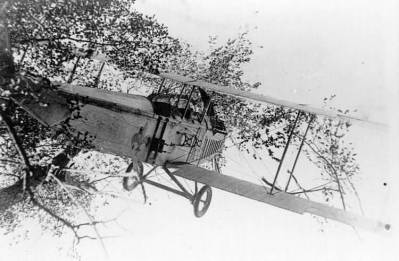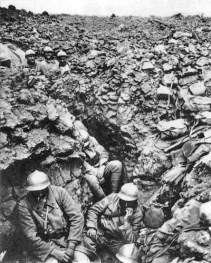I do not know why I am drawn to the Great War. I have edited and upgraded this annual post since last year, but the sentiments remain the same.
—————————————————————————————————————————————-
One hundred years ago tomorrow, on the 11th hour of the 11th month of the 11th day of 1918, the guns of the Great War fell silent. None now truly remember what it was like in the Great War. It is a time which has passed from living memory. A time when the final vestiges of trust of government by nobility died, the violent transition from the world of old noble houses to more representative governments.
In the United States it used to be known as Armistice Day. Now it’s known as Veteran’s Day. In England it’s known as Remembrance Day.
The ordinary Tommy, Poilu, or Doughboys were not always imbued with warrior spirit. Even the Jerry’s weren’t that enthusiastic all the time, because in the winter of 1914 there were unofficial truces on Christmas across the lines, where men met in no man’s land to exchange gifts, bury the dead and in some instances even played ad hoc football games.
The Great War had many firsts. It was the first war fought in the air in a significant way. It saw the first general use of machine guns in more than sporatic fashion, much to the sadness of the troops, for the tactics of open frontal assault in groups of soldiers walking toward enemy lines were of the 18th century whereas the weapons were of the modern age. Frontal assaults upon deeply dug trenches, well-defended positions equipped with machine guns, was madness, but the generals didn’t see that, didn’t understand until much too late. And the slaughter was at a level truly unimaginable, running into the millions, no one really knows how many. And not just soldiers. In Verdun alone there is an ossuary adjacent to the ruins of Fort Douaumont that contains the bones of over 200,000 civilians, stacked in random piles rather than buried in individual graves because the body parts were so scattered that the bodies could not be put back together after they’d been plucked from the mud. And Douaumont itself? See for yourself in the photos below, before and after. Obliterated. Obliterated like the nine towns in France that were lost completely and could never be rebuilt. Entire towns pounded to flat rubble by artillery. The french call them Les villages détruits (the destroyed villages). Three of the nine were eventually rebuilt. The other six are still entirely unpopulated, only remnants of rubble remaining as testament, villages that died for France. French farmers die every year when they plow their fields and detonate old unexploded shells that had been fired almost a century before. I’ve walked over the ground. Even now, after over 100 years, the ground still has deep overlapping shell holes as far as the eye can see. The French government posts the land, for unexploded ordnance buried in the ground is still lethal to the unsuspecting tourist.
The US lost roughly (all of the casualty numbers are ‘rough’, as many men just disappeared in the rain of hell known as artillery barrages) 100,000 men. Compare that if you will to the losses of the first day of the Somme, when the Brits alone lost over 56,000 men. In one day. Let me repeat that. In … one … day. It’s a number unimaginable. I used to work at a shipyard and I remember shift change when hundreds of people would walk in and out when the steam whistles screamed. At that time there were just under 30,000 employees who worked there. When I compared that number to the casualties of the Somme my heart crushed. Almost twice the number of people that worked in that shipyard were lost on the Somme by just the British … in one day. If you’re a student at university, think of every person on campus being slaughtered in one day. The thought, if you have any empathy at all, takes away the power of thought.
This was not glory, though the exploits of individuals like Sargent York were legendary. No, this was carnage, this was industrialized murder, fought all over the world from the muddy fields of Europe to the plains of Africa and beyond. I purposefully avoided posting the most awful photos in my possession, they’re not suitable for general consumption where children could possibly see them. I leave it to your imagination to visualize what happens when a body literally disappears under the blast of an artillery shell.
It was the first truly ‘world’ war, with peoples from all over being drawn into the carnage. It was the dividing line between the end of the old world and the beginning of the new. Old royals and aristocracies fell, to be replaced by republics of various types, the end of the era when the general population trusted their leaders to look out for them. No one was immune. Even Theodore Roosevelt lost his much beloved son Quentin, shot down whilst flying as a fighter pilot.

The US still has thousands buried there, in a cemetery at Montfaucon in France, the white marble crosses bear mute testimony to their sacrifice.

You will see the symbol of the poppy used in remembrance. That is because after the carnage, after the incessant artillery barrages, poppies were the only thing that would grow in the poisoned ground of the battlefields.
I wear my pin every year.

I know this is not a pleasant post. It’s not meant to be. But, like the Holocaust, the Great War is something never to be forgotten, a lesson bought hard by horrible deaths of innocents. If you would, at 11:00 am tomorrow morning, just stop, think, and imagine the thunder of guns falling silent, leaving a ringing stillness in the air.
If I might be allowed to paraphrase the movie ‘Shenandoah’, I think Jimmy Stewart’s character said it best, when he says about war, ‘The politicians praise it, the undertakers win it, and the soldiers just want to go home.’












